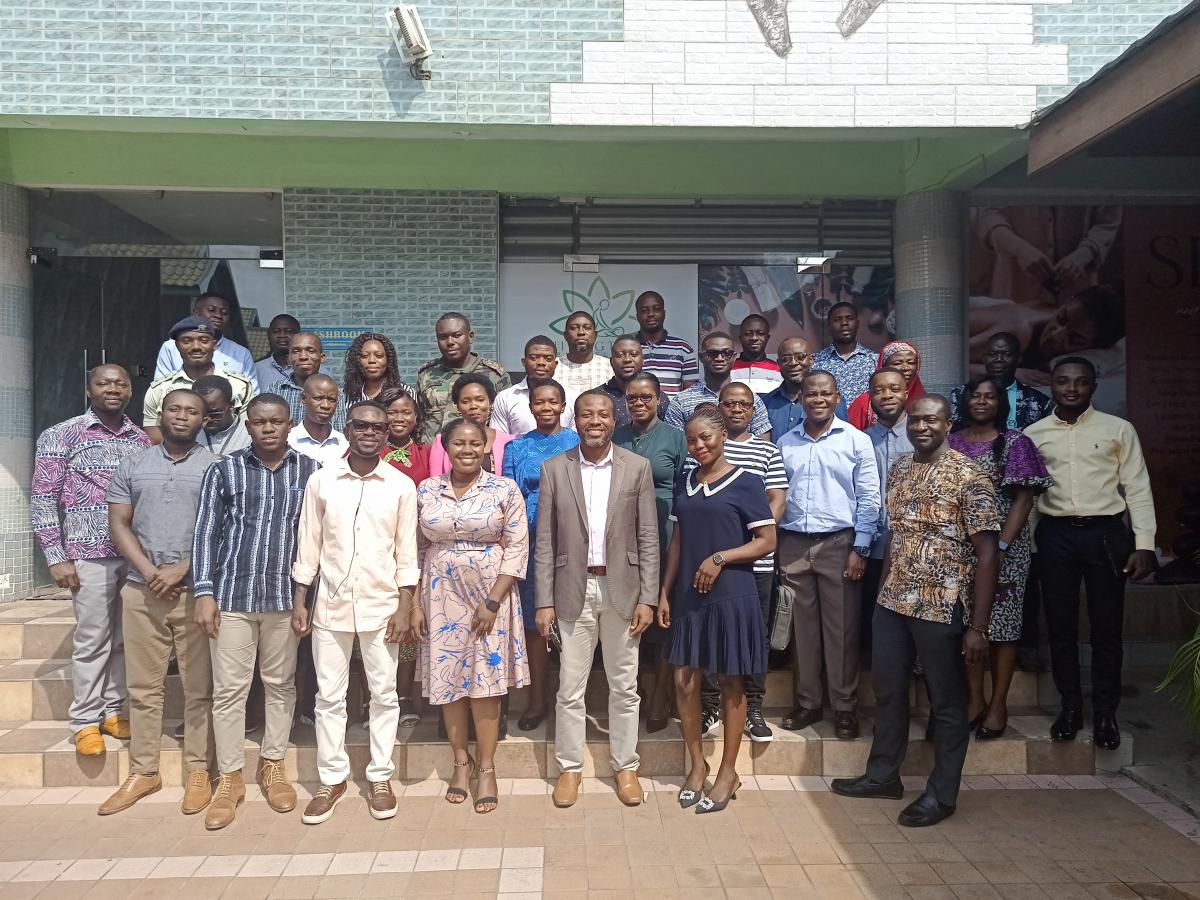Preparing Ghana’s health workforce for data-driven health care is a critical component of the country’s digital transformation. Teaching hospitals play an important role in providing training for health care professionals but also in collecting disease data for detection, reporting and researching diseases, and coordinating public health responses. Despite the important role teaching and specialized hospitals play in epidemic response, they are often overlooked in routine public health surveillance training organized by the Ghana Health Service (GHS) because they operate independently. This gap significantly affects the country’s overall disease surveillance capabilities, limiting early detection of emerging diseases and access to advanced laboratory diagnostics, and resulting in data collection and reporting gaps, and a lack of trained healthcare professionals equipped to identify and respond to public health threats. Addressing this gap is a critical step in strengthening Ghana’s disease surveillance system.
To bridge this gap, CHISU supported the GHS to organize a targeted Integrated Disease Surveillance and Response (IDSR) training program in March 2024 specifically for staff working in the public health units of Ghana’s teaching hospitals and specialized hospitals. GHS’s goal is to equip clinicians and public health professionals at these institutions with the tools and knowledge that are necessary to integrate their surveillance data into GHS’s national disease surveillance system. By focusing on these often-overlooked hospitals, GHS addresses an important need in Ghana's overall public health surveillance system.
The training included:
- An overview of the third edition of the Integrated Disease Surveillance and Response (IDSR) guidelines with an emphasis on implementation in teaching hospitals and quasi-governmental settings
- An introduction to SORMAS, Ghana’s electronic IDSR HIS
- Identification, recording, and reporting of priority disease cases (particularly focusing on epidemic-prone conditions)
- Training to understand the role of designated testing laboratories and how to manage laboratory samples of public health concerns, and an understanding of the role of designated testing laboratories.
GHS trained a total of 35 staff members from five teaching hospitals (Korle-bu Teaching Hospital, Cape Coast Teaching Hospital, Komfo Anokye Teaching Hospital, Ho Teaching Hospital, and Tamale Teaching Hospital) and three specialized hospitals (University of Ghana Medical Center, Ghana Police Hospital, and 37 Military Hospital).

Other Activity Updates
Strengthening Malaria Data Quality in Ghana
CHISU is working at different levels of the government to address key data quality challenges through supportive supervision and coaching visits. Read more ›
CHISU is partnering with the Indonesian Ministry of Health to standardize data exchange for interoperable health information systems that can seamlessly exchange data. Read more ›